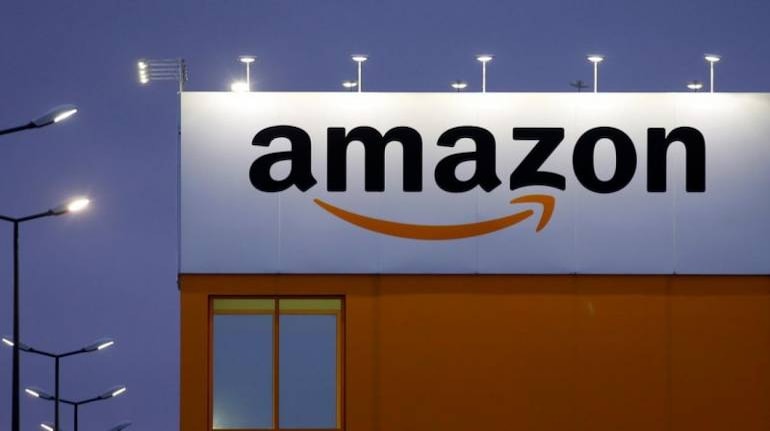



By John Herrman
Blaze Cromwell, a 24-year-old cashier living in Washington, D.C., doesn’t order from Amazon.com or shop at Whole Foods. He doesn’t watch movies or shows on Prime Video. He doesn’t own a Ring or a Kindle. And he doesn’t use Audible, Twitch or Zappos. He’s about as close as one can get to abstaining from Amazon entirely.
Cromwell began the work of cutting the company out of his life in 2017, after reading reports about Amazon’s working conditions and what he saw as generally “unethical practices.”
“I reasoned that financially withdrawing from Amazon.com, and later on its subsidiaries, was one of the most material things I could do as a working-class person with disposable income from time to time,” he said.
Leaving Amazon requires some determination, he said, but it’s less daunting once you get started.
“It’s a matter of people changing both their habits and expectations for their consumption,” he said. It’s not just a choice, he noted, but an ongoing “practice.” (He has, occasionally, looked up titles on IMDb, an Amazon subsidiary since 1998. He’s in the process of finding alternatives.)
People have been advocating boycotts of Amazon for nearly as long as the company has existed. In 1999, programmer and activist Richard Stallman led one related to a lawsuit the company filed against Barnes & Noble to protect a patent covering “1-click” ordering, which he worried would stifle competition in e-commerce. (The lawsuit against Barnes & Noble was settled, and the patent has since expired.)
There have been countless attempts to shed Amazon since: by authors and booksellers, political activists, labor organizers, my colleagues. (Even the most determined abstainers find their limit when trying to eliminate Amazon Web Services, which counts among its clients thousands of other companies, including popular websites and apps, as well as The New York Times.)
Meanwhile, Amazon has grown into a company larger and more powerful than almost any retailer in the world. It sells everything. It directly employs more than 1 million people. Its founder is a household name. It undergirds much of the internet. And it’s intertwined with politics by default, drawing ire from across the political spectrum. (“My anti-capitalist liberal college student and her uber-capitalist conservative grandparents are both boycotting Amazon,” one Twitter user shared in December.)
Unlike in 1999, or even 2009, today the question of whether or not to interact with Amazon has already been answered for many people. The choice is no longer whether to enter the Everything Store. It’s about trying to locate the exit.
“I refused to go to Walmart, and as a small child went to United Farm Worker protests,” said MaryBeth Haslam, 54, an Amazon abstainer from Philadelphia. Dropping Amazon hasn’t been particularly difficult, she said. “Just inconvenient.”
Not every Amazon abstainer has a coherent or specific critique of the company — for some, it’s merely the most visible representation of consumerism, concentrated wealth and big business, taking Walmart’s place in a variety of broad lamentations about culture and the economy.
“It was Nike for a little while. It’s been Nestle, then Coca-Cola,” said Tim Hunt, an editor of the British nonprofit magazine Ethical Consumer. “We can add Amazon to the list of corporate boogeymen, and I don’t mean that flippantly,” he said.
Most abstainers don’t suffer any illusions about what they’re doing; Amazon clearly hasn’t suffered from their absence, and their numbers aren’t large enough to make demands — many more people are currently turning to Amazon than are turning away. Instead, for some, opting out of an increasingly ubiquitous and assertive Amazon offers a sense of control and agency, however slight.
The sheer scope of Amazon’s business interests — including surveillance devices (Ring), government contracts (through Amazon Web Services), and a workforce that includes both low-wage gig workers and the actual richest person in the world — makes finding a reason to opt out of Amazon nearly as easy as finding something to buy on it. But plenty of Amazon abstainers aren’t merely coping with guilt, reclaiming a lost sense of control, or fighting the thought that “ethical consumption” sounds oxymoronic.
Chris Smalls is the former Amazon Warehouse worker whose March protest about working conditions at a Staten Island, New York, fulfillment center, and subsequent firing, turned him into a leader in the nascent movement to organize Amazon workers. He’s an activist now with a potent personal story and a long list of specific demands. He has planned marches on Jeff Bezos’ homes.
Amazon’s ubiquity, and the millions of habits its customers have formed, put Smalls in a strange and exhausting position: appealing for empathy for a largely invisible workforce laboring through a pandemic, while also sympathizing with Amazon customers accustomed to a relatively new convenience.
“Ten years ago we weren’t ordering toilet paper from Amazon,” Smalls said. “Maybe that’s how long it will take to get over it, too.”
c.2020 The New York Times Company

Discover the latest Business News, Sensex, and Nifty updates. Obtain Personal Finance insights, tax queries, and expert opinions on Moneycontrol or download the Moneycontrol App to stay updated!
Find the best of Al News in one place, specially curated for you every weekend.
Stay on top of the latest tech trends and biggest startup news.